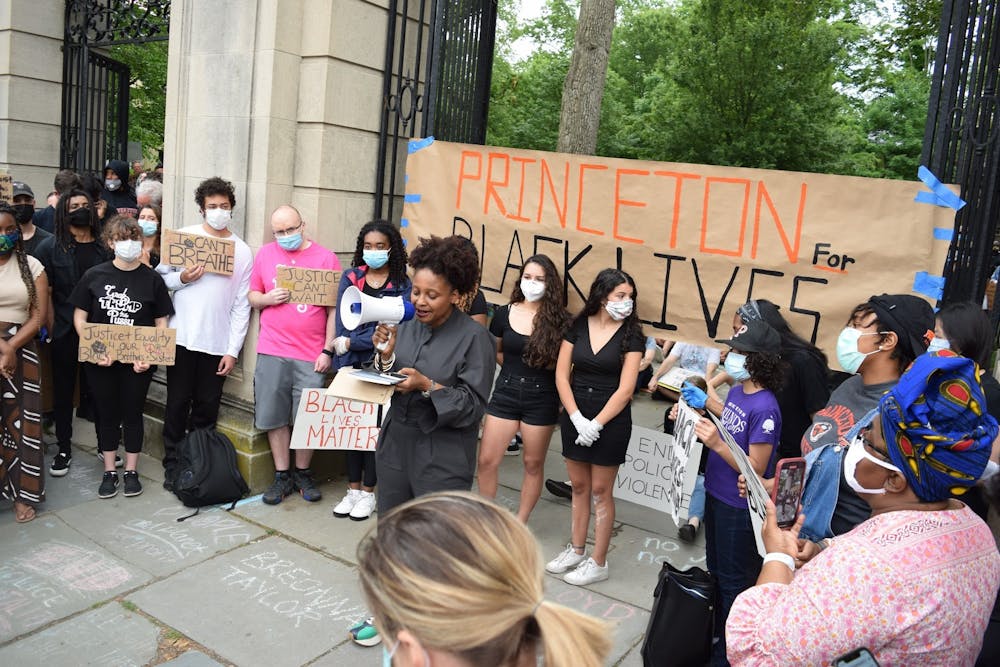This summer has seen the sparking of an enormous dialogue about systemic racism in many communities within our country, some members of which seem to be discovering this age-old issue for the first time. As I’ve talked to family members and friends about issues concerning the Black community, I’ve realized some families simply do not care about the discrimination they face.
Rather than addressing the concerns that were made evident this summer, some of these acquaintances have resorted to the claim that they have enough problems of their own, leaning on stereotypes and myths about Black people. One particular comment I have heard over and over is the question, “Why don’t they just work hard like us and build themselves a reputation, instead of complaining all the time?”
I have noticed that most of these individuals who make this claim, some of whom are immigrants, belong to so-called “model minority” groups. The model minority myth is based on the belief that people of Asian descent are academic geniuses, who through perpetual hard work have successfully attained the “American Dream.”
The term “model minority” was first used in the 1960s by William Petersen in reference to people of Chinese and Japanese descent and has since been applied to other people of Asian descent, especially immigrants. People in these groups are expected to have lucrative careers, and their children are expected to excel academically and attend prestigious universities. They are marked as ideal, law-abiding citizens, setting an imaginary bar for other minority populations to follow.
At first glance, this idea seems to be one of positive reinforcement — after all, people can “improve” by following models. However, this myth is built on stereotypes, such as the assumption that all Asian kids excel at math, and has negative implications against other minority groups by painting them as “lazy” or “unintelligent.” Oftentimes, it creates barriers between Asian American communities and other minorities, preventing our community from recognizing their challenges.
It doesn’t take long to make a connection between the model minority myth and systemic racism in the United States. The myth strips minorities from all cultural and ethnic backgrounds of their individuality, confining them to reductive stereotypes and fueling the ugly fire of racism. Not only does it make Asians the target of discrimination, it also encourages them to be racist or dismissive toward other minority groups. Moreover, it obscures the effects of systemic racism on Black communities in America, blaming personal faults for their struggles, rather than the system that prevents them from overcoming these issues.
Instead of embracing our “model” status and thinking of ourselves as superior to other minorities, Asian Americans must join these groups in their efforts for equality, especially since the Black community’s efforts for racial equality largely coincide with our own.
Many members of these “model minorities” fail to realize that the Civil Rights Movement, led by Black citizens, paved the path for them to become “models.” Even though Chinese American and Asian Indians gained the right to vote in the 1940s, their voting rights were largely unprotected until the passage of the 1965 Voting Rights Act, which prohibited discrimination against language minority groups. The Immigration and Nationality Act of 1965 also prohibited racist immigration bans, allowing more Latin Americans, Asians, and Africans to immigrate to the United States.

Many Asian families who immigrated to the United States were able to do so because of the Black population’s fight for equality. We owe it to them to use our hard-earned vote and elevate their voices when they want support. Not only is showing up to the polls and actively working against this myth the moral thing to do as civically engaged citizens, it is also something we owe to the community that has planted the seeds for our growth.
The myth is especially pervasive in our education system. “Model minority” children are faced with constant pressure to maintain stellar grades and prove themselves, while children from other groups are not expected to perform as well. If anything, most of them are set up for failure, creating a bottleneck effect where many students from the “well-to-do” groups can receive a higher education while other groups facing structural barriers and low expectations are squeezed out.
This effect filters up to institutions of higher education such as Princeton. According to Princeton’s data from the Class of 2023, about 24 percent of admitted students identify as Asian American, while only 11 percent identify as Latinx, 7 percent as African American, and less than 1 percent as American Indian. These percentages do not reflect the racial index outside the Orange Bubble (or any other higher education institute, for that matter), a result of this country’s inability to create equal educational opportunities for Black students. If these students are barred from unlocking their potential through education, how are they expected to overcome the multitude of barriers they face?
As students and civically engaged citizens, it is our job to raise the voices of those who are underrepresented in prestigious academic settings. Everybody has the potential to succeed if given the chance to do so, and we must fight for a future where everyone is given that chance. Princeton and other educational institutions can start by increasing efforts to admit more Black and other minority students and providing them resources to succeed.

The model minority myth has grown throughout the ages as the weeds among the good harvest of the racial equality movement. Instead of pitting minorities against each other, we must strive to raise fellow marginalized communities up and achieve equal respect for all. A system that prevents some of us from winning is a system that ensures none of us will.
Alaina Joby is a first-year from Los Angeles, Calif. She can be reached at ajoby@princeton.edu.








